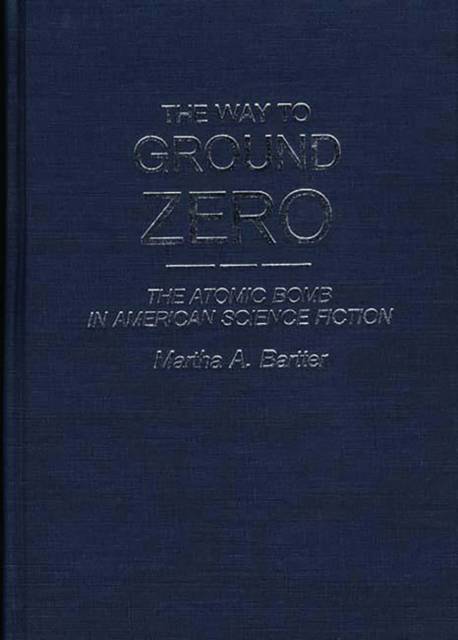
- Retrait gratuit dans votre magasin Club
- 7.000.000 titres dans notre catalogue
- Payer en toute sécurité
- Toujours un magasin près de chez vous
- Retrait gratuit dans votre magasin Club
- 7.000.0000 titres dans notre catalogue
- Payer en toute sécurité
- Toujours un magasin près de chez vous
161,45 €
+ 322 points
Description
Bartter surveys 250 American science-fiction stories, and American SF novels--with occasional overlaps of stories made into episodic novels--that have some relationship, often direct, sometimes marginal, to atomic weapons and their effects. . . . Highly recommended for popular literature collections. Choice
Divided into three principal parts, The Way to Ground Zero begins by exploring The Way to Hiroshima. Through a detailed analysis of the works included, Bartter reveals the sociopolitical assumptions that authors took for granted and develops a method by which these assumptions can be disclosed. She shows that encoded in these fictions we can find the patterns that led us to create and use the atomic bomb. In the second section, Bartter looks at the deeper assumptions on which these sociopolitical assumptions rest, focusing particularly on those which perpetuate considerations of nuclear war--both in science fiction and in actual policy making. Finally, Bartter explores alternative assumptions proposed by innovative science fiction writers. Throughout, an attempt is made to forge a deeper understanding of the ways in which science fiction both reflects and influences human and international relations. Students of science fiction and of literature and politics will find Bartter's work enlightening, provocative reading. Bartter argues that a close examination of American fiction, particularly science fiction, can offer important new insights into the events surrounding the bombing of Hiroshima in 1945. The use of an atomic bomb to end the war followed a scenario long established in science fiction--defeating our enemy with a super-weapon developed by native technological genius. By examining the interrelationship between this persistent plot-device and the development and use of a real super-weapon, Bartter sheds new light on the transactional role of literature and real life. Her analysis is based on a comprehensive theory of human nature, substantiated by exhaustive research in science fiction archives and libraries and covers a large number of stories--both well-known and relatively obscure--featuring super weapons or super war and published by American authors.Spécifications
Parties prenantes
- Auteur(s) :
- Editeur:
Contenu
- Nombre de pages :
- 290
- Langue:
- Anglais
- Collection :
- Tome:
- n° 33
Caractéristiques
- EAN:
- 9780313258923
- Date de parution :
- 24-10-88
- Format:
- Livre relié
- Format numérique:
- Genaaid
- Dimensions :
- 156 mm x 234 mm
- Poids :
- 589 g

Les avis
Nous publions uniquement les avis qui respectent les conditions requises. Consultez nos conditions pour les avis.






